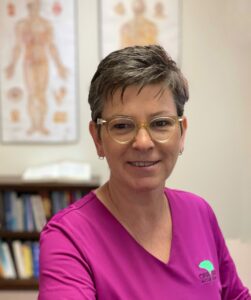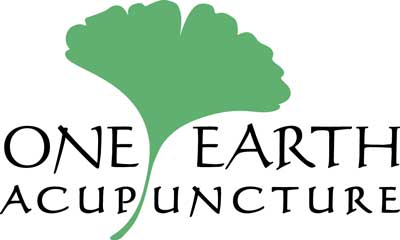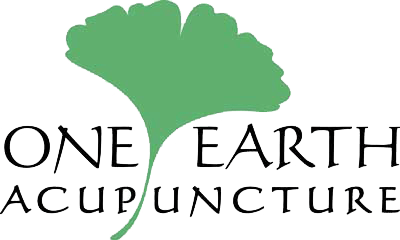Liberated from Anxiety

The year-end holidays are supposed to provide a feeling of peace, celebration and rest. But for many people, this time of year brings much more pressure and anxiety due to financial responsibility, year-end goals, and family obligation, ritual and gift-giving
Logic tells us that we can control our anxiety by learning to be calm. Quiet contemplation and meditation are indeed useful tools, however ‘mind traps’ during times of reflection can cause some folks even MORE anxiety. Renowned author Anne Lamott says “my mind is like a bad neighborhood, I try not to go there alone.” For many, partnering with a professional in talk therapy is an effective treatment to combat anxiety, but in all cases, acupuncture adds a component that physically and psychologically strengthens the way your body works.
Anxiety covers an enormous range of conditions ranging from manic depression to paralyzing numbness. It is a stress response that can arise suddenly, as in panic, or can occur gradually [see below for more descriptive medical terms]. Under the banner of anxiety come other symptoms such as bowel issues, indigestion, sleeplessness, depression or skin issues. Although everyone experiences fear and anxiety it is important to clarify the difference – fear is a response to an external threat, whereas anxiety can erupt from external events and a person’s own thoughts.
Acupuncture has tremendous clinical relevance for the normal stresses of daily life with a method commonly non-verbal. It is efficacious physically and psychologically, yet gentle, and nourishes on a deep level.
Stress and anxiety can lead to symptoms of stagnation, particularly of the blood. Qi and blood refer to the blood, nutrients, oxygen and other “life giving” process that are happening in our bodies at every moment of every day of our lives.
When the blood, nutrients and oxygen are in high quality, being absorbed and all the processes are functioning at optimal levels, we will stay healthy, youthful, vibrant and disease free. It isn’t until a process fails or we starve our cells of oxygen and nutrients that sickness starts. Like everything, our bodies have a threshold or breaking point, which is when the “disease” goes beyond the breaking point and we become symptomatic.
Various acupuncture points may be selected for treatment based on proper discernment of the pattern of disharmony, with the generalized aim of treatment to move the blood, strengthen the organs (zang-fu organs in Chinese Medical terms –involving the liver, spleen, heart, lung and kidney) and redistribute and balance the qi.
Acupuncture helps release stuck, stagnated qi. It also helps the body release its own opiates (pain relieving neurotransmitters similar to those in Oxycodone, Percocet and other addictive narcotics). Producing these substances naturally eliminates the chance for overdose, mental dullness, or other adverse side effects.
Western treatments tend to center around prescription drug therapy to assist in restoring chemical balance to the brain. Most of these drugs are meant to be used in the short-term; some can become addictive. Many produce other undesirable side-effects such as decreased appetite; dry mouth; sweating; constipation; tremor; fatigue; sexual side-effects; and more. Help through acupuncture can be given even if you’re taking medication from your doctor.
Liberate yourself from anxiety and feel balanced more naturally by using acupuncture.
Generalized anxiety disorder pertains to persistent daily anxiety or worry that interferes with one’s life. In addition, there may be three or more of the following symptoms: restlessness; fatigue; concentration problems; irritability; muscle tension; and insomnia. Women are twice as likely as men to have this disorder. It has not been proven that repressed conflicts or chemical imbalances cause anxiety, although these are popular theories among mental health professionals.
Panic attacks are acute and extreme anxiety responses to a specific situation. Symptoms of a panic attack include: a sudden appearance of shortness of breath; feelings of being smothered or “closed in”; heart palpitations; shaking; fear of going crazy or losing control; feeling detached from the environment; dizziness; sweating; and chest pain. It is not uncommon for people to worry that they have a dangerous medical problem. Although panic attacks are not dangerous in and of themselves, it makes sense to seek a physician to rule out other disorders.
Posttraumatic stress disorder (PTSD) is an anxiety disorder caused by exposure to an overwhelming traumatic event experienced by combat veterans and victims of violent acts, whereby the person repeatedly re-experiences the event. Sometimes a person’s symptoms don’t begin until months or years after the traumatic event took place. Symptoms include intense fear, hopelessness and horror. The person re-experiences the trauma in nightmares or flashbacks. The person may have difficulty sleeping or be easily startled. Oftentimes PTSD becomes less severe over time.

Evelynne Toth, L.Ac
Founder & Owner
Testimonials
Subscribe
Integer posuere erat a ante venenatis dapibus posuere velit aliquet sites ulla vitae elit libero

